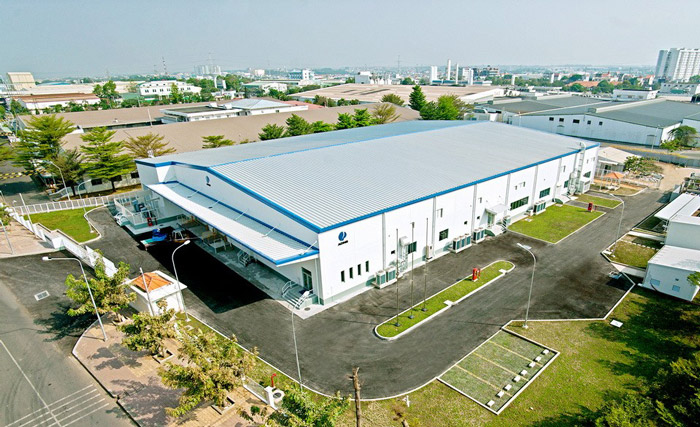Discover essential tips for negotiating a factory rental agreement successfully, ensuring favorable terms for both parties involved. Effective communication, thorough research, and a strategic approach are key to achieving a mutually beneficial outcome. From defining needs to documenting agreements, these tips empower landlords and tenants to navigate the negotiation process with confidence.
Definition of Factory Rental Agreements
Factory rental agreements, also known as industrial lease agreements, are legally binding contracts between a landlord (often the property owner or management company) and a tenant (usually a business or corporation) for the rental of a factory or industrial space. These agreements outline the terms and conditions under which the tenant can occupy and utilize the premises for their manufacturing, warehousing, or other industrial activities.
Factory rental agreements typically include clauses related to rental rates, lease duration, property maintenance responsibilities, utilities, insurance, and any additional provisions specific to the industrial nature of the space. These agreements serve as a crucial framework for the relationship between the landlord and tenant, ensuring both parties understand their rights, obligations, and expectations throughout the lease term.

Maybe you can refer to it further:
Purpose of Negotiation in Securing Favorable Terms
Negotiation plays a vital role in securing favorable terms in a factory rental agreement for both landlords and tenants. For landlords, negotiation allows them to maximize the return on their investment by securing competitive rental rates and favorable lease terms that protect their property and financial interests. On the other hand, tenants negotiate to obtain terms that align with their operational needs, budget constraints, and long-term business goals.
Effective negotiation can result in a win-win outcome where both parties feel satisfied with the terms of the agreement. Landlords may offer incentives such as rent concessions, lease extensions, or tenant improvement allowances to attract desirable tenants and maintain high occupancy rates. Meanwhile, tenants can negotiate for lower rents, flexible lease terms, or property upgrades to enhance their operational efficiency and reduce costs.

Tips for Negotiating a Factory Rental Agreement
Negotiating a factory rental agreement requires careful preparation, clear communication, and a strategic approach to achieve mutually beneficial outcomes. Whether you are a landlord or a tenant, consider the following tips to navigate the negotiation process successfully:
Conduct Thorough Research: Before entering into negotiations, research the local industrial real estate market to gain insight into current rental rates, vacancy rates, and market trends. Understanding the market dynamics will help you assess the fair market value of the property and set realistic expectations for the negotiation.
Define Your Needs and Priorities: Identify your specific requirements and priorities for the factory space, such as size, location, amenities, and lease term. Clearly articulate your needs to the other party and prioritize them based on their importance to your business operations.

Establish Your Negotiation Strategy: Develop a negotiation strategy that aligns with your goals and objectives for the rental agreement. Determine your desired outcomes, fallback positions, and potential concessions you are willing to make during the negotiation process.
Build Rapport and Trust: Establishing a positive relationship with the other party is essential for successful negotiation. Build rapport and trust through open communication, active listening, and respectful engagement. A collaborative approach fosters goodwill and increases the likelihood of reaching a mutually beneficial agreement.
Focus on Value, Not Just Price: While rental rates are important, focus on the overall value proposition of the rental agreement. Consider factors such as lease terms, tenant improvements, maintenance responsibilities, and potential incentives offered by the landlord. Look for opportunities to create value for both parties beyond just the monetary aspect of the lease.
Negotiate Lease Terms: Carefully review and negotiate the lease terms to ensure they align with your needs and protect your interests. Pay close attention to clauses related to rent escalation, lease duration, renewal options, security deposits, and tenant improvements. Seek clarification on any ambiguous or unfavorable provisions and propose amendments to address your concerns.
Seek Professional Guidance: Consider seeking advice from legal counsel, real estate professionals, or industry experts to help you navigate the negotiation process and review the terms of the rental agreement. Experienced professionals can provide valuable insights, identify potential risks, and offer strategic advice to help you make informed decisions.

Document Agreements in Writing: Once you reach an agreement, ensure that all terms and conditions are documented in writing within the factory rental agreement. Review the lease document carefully to confirm that it accurately reflects the terms negotiated during the process. Seek clarification on any discrepancies or missing details before signing the agreement to avoid misunderstandings or disputes in the future.
Maintain Open Communication: Maintain open communication with the other party throughout the lease term to address any issues or concerns that may arise. Establishing clear channels of communication and promptly addressing issues can help prevent conflicts and maintain a positive landlord-tenant relationship.
Review and Renew as Necessary: Regularly review the terms of the rental agreement and assess whether they continue to meet your needs and objectives. If necessary, consider negotiating lease renewals or modifications to accommodate changes in your business or the market environment.
In conclusion, negotiating a factory rental agreement requires careful planning, effective communication, and a collaborative mindset to achieve favorable outcomes for both landlords and tenants. By following these tips and strategies, you can navigate the negotiation process with confidence and secure a rental agreement that meets your needs and objectives.
If you need factory rental, please contact Long Hau Industrial Park Vietnam. They offer state-of-the-art facilities and a strategic location that can cater to various manufacturing needs. Whether you’re in electronics, textiles, or automotive industries, Long Hau provides customizable spaces equipped with modern amenities to streamline your production processes. With their commitment to quality and efficiency, partnering with Long Hau Industrial Park Vietnam ensures a conducive environment for your business to thrive.
